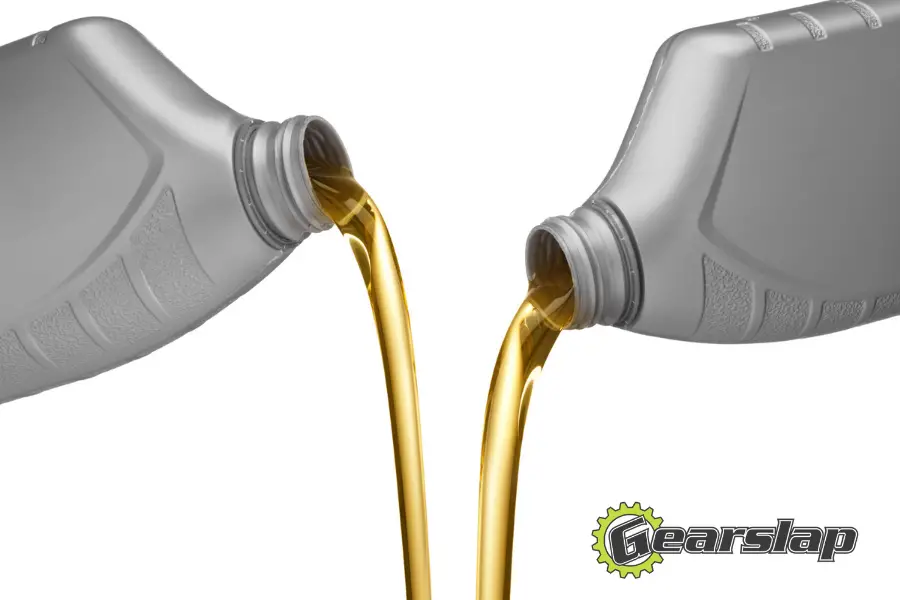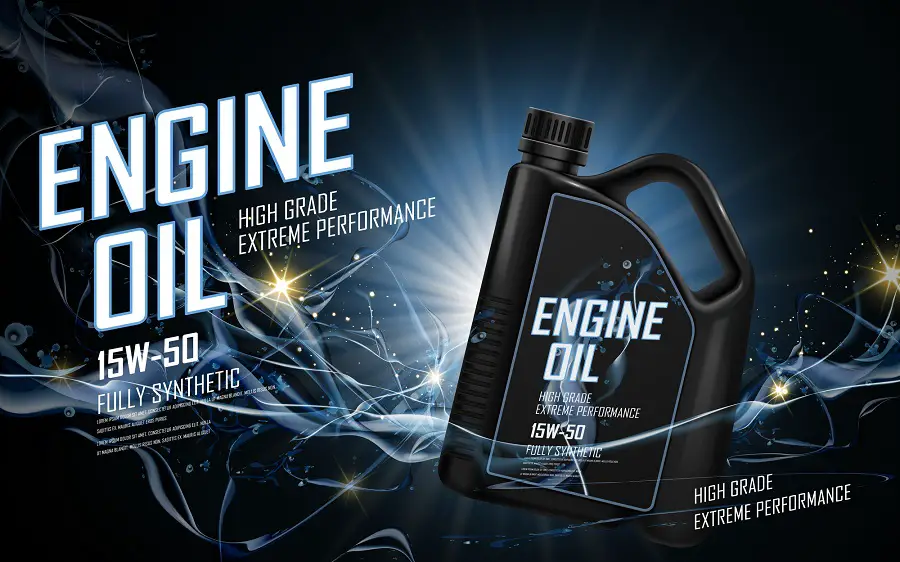Whenever I change my oil, they ask if I want conventional or synthetic. My inclination is to choose conventional engine oil because the oil change cost is less. After all, oil is oil, and it all lubricates. But is synthetic oil better than conventional? Should I rethink my choice?
The answer: since I don’t own an older vehicle, yes, I should reconsider. Modern engines have tighter tolerance in their critical engine components and higher compression ratios. Synthetic oil is more chemically stable, evaporates less, won’t thicken when it’s cold and is less likely to produce engine sludge. It increases the required time interval between oil changes and can extend engine life.

Conventional vs Synthetic Motor Oil
To compare each type of oil, we need to look at what motor oil does. When your engine runs, metal components are moving inside of it. They rub against one another. This produces friction, which produces heat, which can destroy an engine. Your motor oil continuously passes over these rubbing parts and keeps them lubricated, thereby keeping heat from building up.
Oil doesn’t last forever. As it circulates, it picks up dirt and debris. It gets minute metal shavings from the cylinders. It becomes thicker and doesn’t move through your engine as well. Eventually, it can become sludge and cause the engine to seize. That’s why oil needs to be changed.
Conventional base and synthetic motor oils are made by refining crude oil. Despite what the name might suggest, synthetic oil is not an oil substitute. It’s real oil. However, there’s more of a man-made factor than there is with conventional. The real difference in the two lies in how much more refined synthetic oil is. It’s specifically engineered for maximum lubrication and engine protection.
About Conventional Motor Oil
Conventional motor oil is refined from the crude oil that’s pumped out of the ground. In its natural state, crude oil isn’t of much use to anyone. Refineries heat the crude oil, and different molecules break away at different temperatures. It’s called fractionation. These various fractionated subproducts become the basis for several useful products, including gasoline, kerosene, propane, butane and diesel fuel. One of these products is conventional motor oil.
Average Life of Conventional Motor Oil
Before 1990, most vehicles required an oil change about every 3,000 miles. That service interval number has gone up in recent years due to greater engine efficiency and improvements in oil refinement techniques. Most late-model cars can go about 7,500 miles between oil changes.
It’s worth noting, however, that most car manufacturers now recommend synthetic oil. Your oil won’t suddenly go bad if you run conventional oil up to 7,500. However, as your conventional oil gets more mileage, it loses its lubricating quality. The engine will run hotter, which increases engine wear. If you choose not to change your oil at all, it can eventually turn into sludge and destroy the engine.

Conventional Motor Oil Additives
Refined standard motor oil by itself isn’t adequate to protect your engine. Additives are required. One of these is the viscosity index improver (VII).
The thickness, or oil viscosity, changes with the engine temperature. The measure of this tendency to change is called the viscosity index. VIIs adjust the index to minimize the change through normal vehicle operating temperatures. This ensures that the oil will circulate and be useful whether the car has just been started in the cold temperatures of a winter morning or has been driven for hours in extreme heat.
Other additives are rust inhibitors and dispersants. Dispersants are so named because they disperse sludge that builds up as time passes. Another common additive is zinc, which protects the engine’s surfaces.
In general, all the necessary additives are already there in the oil you pour out of a can. You can buy aftermarket additives at an auto parts store, but in most cases, there’s no reason to do so.
Conventional Oil Pros and Cons
For many drivers, the biggest appeal of conventional oil is that it costs less than synthetic oil. Also, some older engines aren’t designed to handle synthetic oil’s thinner consistency and different chemical make-up. This is most often true of cars built before synthetic oil became widespread. These vehicles may lose synthetic oil from their gaskets or into the combustion chamber. Your vehicle manufacturer guidelines will tell you which cars can’t use synthetic oil.
The cons of conventional oil can be summed up in one statement: it simply isn’t as good. It doesn’t handle heat and debris as well as synthetic. It needs to be changed more often. It won’t protect the engine and extend the life the way synthetic oil will. Also, the lower cost at oil change time may not save you money in the long run. If you have to change oil more often, or if your engine doesn’t last as long, conventional oil may wind up with an extra cost rather than a savings

About Synthetic Motor Oil
Synthetic engine oils are manufactured by breaking down and rebuilding molecules of petroleum. Engineers have identified precisely the individual molecules that provide the best lubrication. Synthetics are constantly being modified and improved.
Life of Synthetic Motor Oil
Most modern car manufacturers recommend synthetic oil and call for an oil change interval of 7,500 miles. Can you really go 10,000 miles with synthetic oil? There’s a good chance you’ll get away with it without shortening the life of your vehicle. However, regular oil change with synthetic oil is the best cheap insurance policy you can buy for your engine.
Advantages of Synthetic Oil
- Synthetic oil does not thicken as much in cold weather and will circulate and lubricate more quickly.
- Synthetic oil reduces emissions and fuel consumption.
- Synthetic oil generally supports better engine performance and better fuel economy.
- Less frequent changes mean less oil being pumped, used and disposed of. That’s good news for the environment.
- Synthetic oil resists heat and debris better and keeps engines running cooler.
So, Is Synthetic Oil Really Better?
Most experts recommend synthetic oil, and AAA’s research backs them up. They found that synthetics performed 47 percent better on a battery of industry tests. AAA now urges drivers to switch to synthetic on their next oil change, especially if they operate their vehicles in extreme conditions.
Is It OK To Switch from Conventional To Synthetic Oil?
Yes, it is! It won’t hurt a thing. In fact, you can buy a synthetic blend of conventional and synthetic oil. This semi-synthetic oil costs less than synthetic and offers some, albeit fewer, advantages. If you’re convinced to make the switch, it’s best to go to full synthetic.






